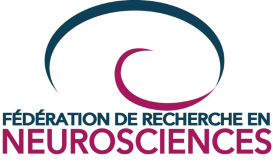événements, séminaires
29 Septembre 2023 – Eric Burguière (ICM, Paris) – Translational approach to investigate the neurofunctional bases of repetitive behaviours
Repetitive behaviors are acquired through practice and, under normal conditions, allow motor or cognitive processes to be efficiently automated in everyday life. However, a loss of control in the regulation of these processes can lead to their pathological overexpression. These… Continue reading
événements, séminaires
22 Septembre 2023 – Valérie Doyère (Paris-Saclay Institute of Neuroscience / NeuroPsi)- The amygdala and the temporal expectancy of a reinforcer
When a sound predicts the potential arrival of a reinforcer, the subject learns the time at which that reinforcer may arrive or is available. The amygdala, and in particular its basolateral (BLA) part is critical for the emotional/motivational aspect of… Continue reading
événements, séminaires
7 Juillet 2023 – Mariano Soiza-Reilly (Institute of Physiology, Molecular Biology and Neurosciences – University of Buenos Aires – CONICET)- Synaptic refinement of afferents to raphe 5-HT neurons: Implications for psychiatric disorders
Psychiatric disorders including depression, anxiety and stress vulnerability represent main disabling conditions for individual’s life. Recent studies suggest that many aspects of these pathologies could have an early origin during childhood. Our goal is to investigate how maladaptive neurodevelopmental mechanisms… Continue reading
événements, séminaires
15 Mai 2023 – Kishore Kuchibhotla (Johns Hopkins University, Baltimore, USA)- Insights and strategies during sensorimotor learning
Large-scale neural recordings provide an opportunity to better understand how the brain implements critical behavioral computations related to goal-directed learning. In this seminar, I will argue that re-visiting our understanding of the shape of the learning curve and its underlying… Continue reading
événements, Non classé, séminaires
12 Mai 2023 – Jean-François Perrier (Université de Copenhague, Danemark) – Understanding the cellular mechanisms responsible for neurodevelopmental encephalopathies – the example of STXBP1 encephalopathies
De novo mutations in Stxbp1 are among the most prevalent causes of neurodevelopmental disorders, and lead to haploinsufficiency, cortical hyperexcitability, epilepsy and other symptoms. Given that Munc18-1, the protein encoded by … Continue reading
événements, séminaires
3 Mars 2023 – Francesco BATTAGLIA (Radbound Université Radboud, Pays-Bas) – Hippocampal gamma oscillations mediating cortico-hippocampal oscillations and shaping hippocampal temporal code
Theta sequences and phase precession shape hippocampal activity and are considered key underpinnings of memory formation. Theta sequences are sweeps of spikes from multiple cells, tracing trajectories from past to future. Phase precession is the correlation between theta firing phase… Continue reading
événements, séminaires
10 Février 2023 – Mohamed Jaber (Université de Poitiers) – Genetic and environmental animal models of autism reproduce the spectrum of the disease
Genetic and environmental factors increase autism spectrum disorder (ASD) incidence and this has led to the generation of corresponding animal models, with some showing strong construct and face validity.
In this line, we have recently published a series of several studies on ASD environmental… Continue reading
événements, séminaires
3 Février 2023 – Jenny GUNERSEY (Université de Melbourne, Australie) – Excitatory synapse regulators and their potential as therapeutic targets in chronic conditions
In this presentation, I will describe our recent work on a family of proteins with important roles in excitatory synapse development and maintenance. These proteins have been identified as substrates of the enzyme BACE1, a potential therapeutic target in Alzheimer’s… Continue reading
événements, séminaires
25 Novembre 2022 – Hélène Puccio (Institut NeuroMyoGene, Université Claude Bernard, Lyon et Institut de Génétique et de Biologie Moléculaire et Cellulaire, Université de Strasbourg) – Disruption of the CoQ10 biosynthetic Complex Q causes mitochondrial dysfunction and Ca2+ imbalance in Purkinje neurons in COQ8A-ataxia
COQ8A-Ataxia is a rare form of neurodegenerative disorder due to mutations in the COQ8A gene. The encoded mitochondrial protein is involved in the regulation of Coenzyme Q10 biosynthesis. Previous studies on the constitutive Coq8a-/- mice indicated specific alterations of cerebellar… Continue reading
événements, séminaires
2 Décembre 2022 – Gabriel Lepousez (Unité Perception et Mémoire, Institut Pasteur) – How brain circuits sense and integrate peripheral immune signals
Upon infection, bacterial compounds, and the pro-inflammatory cytokines they elicit, induce a complex response coordinated by the brain and known as “sickness behavior”. This response induces stereotyped behavioral changes (reduced locomotion and food intake, social avoidance), metabolic adjustments (fever, glycemia),… Continue reading


